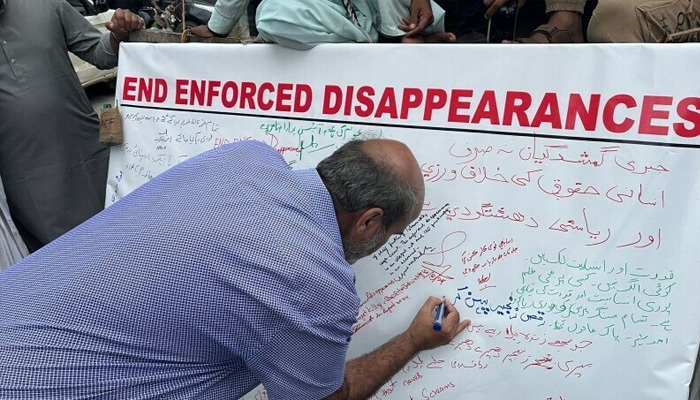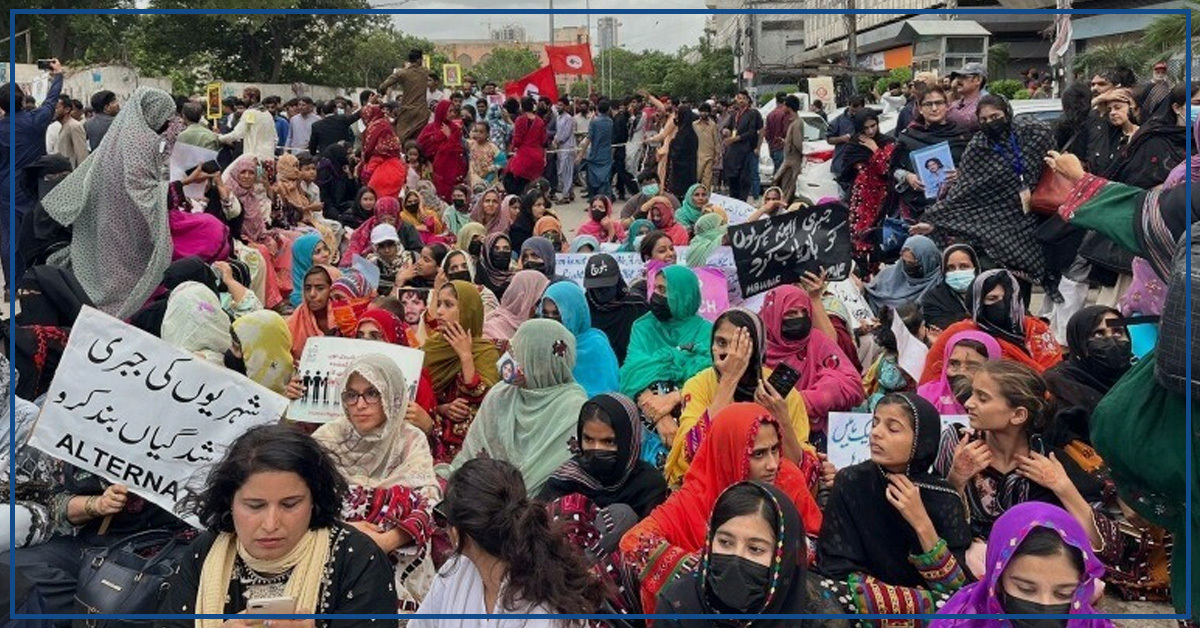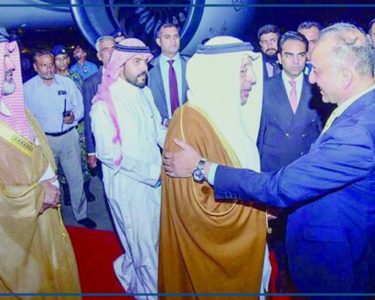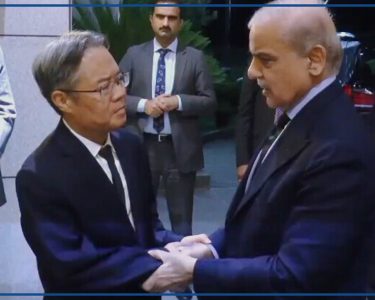On Friday, hundreds of people marched in Karachi to mark the International Day of the Victims of Enforced Disappearances. The participants carried banners commemorating loved ones who have been forcibly disappeared or killed.

The UN General Assembly, on December 21, 2010, expressed grave concern over the rise in enforced disappearances globally, including related arrests, detentions, and abductions. The assembly welcomed the adoption of the International Convention for the Protection of All Persons from Enforced Disappearance and established August 30 as the International Day of the Victims of Enforced Disappearances, observed annually from 2011 onward.
The march, which covered nearly three kilometers from Teen Talwar to the Karachi Press Club, represented a growing nationwide movement uniting communities affected by enforced disappearances in Pakistan. Academic and activist Nida Kirmani noted that the event brought together various affected communities, emphasizing that no community in Pakistan is untouched by this issue.
The march featured slogans demanding justice and saw participation from families of missing persons, human rights activists, lawyers, and civilians. Usman Baloch, 86, a long-time activist, led the march with enthusiasm, expressing hope at seeing young people engage in the movement. Young Baloch girls, including those as young as 12, joined the march, inspired by prominent activists like Sammi Deen Baloch and Dr. Mahrang Baloch, who have been leading national movements against enforced disappearances.
Participants wore face masks bearing the images of Mahrang and Sammi, chanting their names in support as they marched across Clifton Bridge to the Karachi Press Club. Sammi delivered a speech met with applause, emphasizing the need for legal processes rather than extrajudicial actions.
Elahi Bux Bikik, a veteran activist from Sindh, called for the return of the bodies of the disappeared if they are guilty of crimes, asserting that justice should be served through legal channels. Qazi Khizer, vice-president of the Human Rights Commission of Pakistan’s Sindh Chapter, echoed this sentiment, demanding that those who have committed crimes to be tried in court and those innocent be released.
The march also included representatives from various civic organizations, such as the Baloch Yakjehti Committee, Baloch Missing Persons, Sindh Sujag Forum, Voice of Sindhi Missing Persons, and Voice of Shia Missing Persons. Sasui Lohar, whose father was killed earlier this year, called on the UN to intervene and help end enforced disappearances in Pakistan.
Several activists shared personal stories of abductions, including 16-year-old Sadaf Ameer, who spoke about her missing father and urged solidarity with the victims and their families. Her powerful address received significant applause from the crowd.
The large turnout, more than triple the size of last year’s march, indicates that the movement to end enforced disappearances is gaining momentum, reflecting a growing revolution against this pervasive issue.





